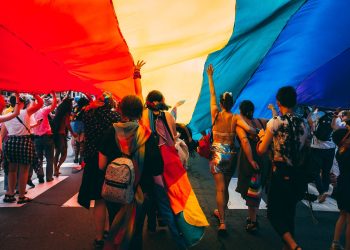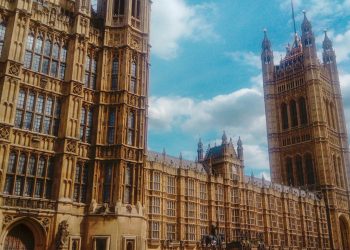Liverpool is gearing up for a landmark exhibition that will showcase the journey of Holly Johnson, from his roots in the city’s punk scene to his rise to international stardom. The exhibition, aptly titled “The Power of Holly,” is a collaboration between arts groups Homotopia and DuoVision. It’s set to offer a deep dive into Johnson’s life, his time with Frankie Goes To Hollywood, and his solo career.
Capturing Local LGBTQ+ Stories
Slated for 2024, the exhibition aims to do more than just highlight Johnson’s career. It plans to “capture the stories” of other local LGBTQ+ individuals, providing a broader perspective on the community’s influence and experiences. This initiative is seen as a step towards preserving and celebrating the rich cultural heritage of Liverpool’s LGBTQ+ community.

Johnson’s Reaction: A Personal Lottery Win
For Holly Johnson, the opportunity to stage this exhibition is akin to winning the lottery. He reflects on his journey, influenced by the realms of music, art, and literature. Icons like Jean Genet, William Burroughs, The Beatles, Marc Bolan, David Bowie, The Velvet Underground, Derek Jarman, Andy Warhol, and Sir Peter Blake have all played a part in shaping his artistic vision.
From Holly Woodlawn to Stardom
Born William Johnson in 1960, he took the name Holly from actress Holly Woodlawn, a friend of Andy Warhol. His journey from recording his first single “Yankie Rose” in 1979 to achieving three number ones with Frankie Goes to Hollywood, and continued success as a solo artist, is nothing short of remarkable. Johnson’s contributions extend beyond music to the visual arts, with exhibitions at prestigious institutions like the Royal Academy.
A Trailblazing Icon
Olivia Graham from Homotopia and James Lawler from DuoVision emphasize Johnson’s monumental status as an LGBTQ+ icon. His influence in queer fashion and culture during the 1980s and his unapologetic approach to his sexuality at a time when homophobia was widespread are highlighted as key aspects of his legacy.
A Comprehensive Year of Festivities
This exhibition marks the conclusion of an extensive year-long endeavor, funded by a substantial grant from the National Lottery Heritage Fund (NLHF). The project involves gathering narratives through local workshops and sessions of oral history, highlighting the profound impact Holly Johnson has had on the musical scene in Liverpool and beyond.
Chronicling LGBTQ+ Legacy
Helen Featherstone from the NLHF speaks to the project’s groundbreaking nature, focusing on documenting and safeguarding the pivotal stories of the LGBTQ+ community. This exhibition transcends a mere look back at the career of a music legend; it’s a tribute to the rich history and lasting influence of the LGBTQ+ community on the cultural fabric of Liverpool.
©unitedradiance.org



